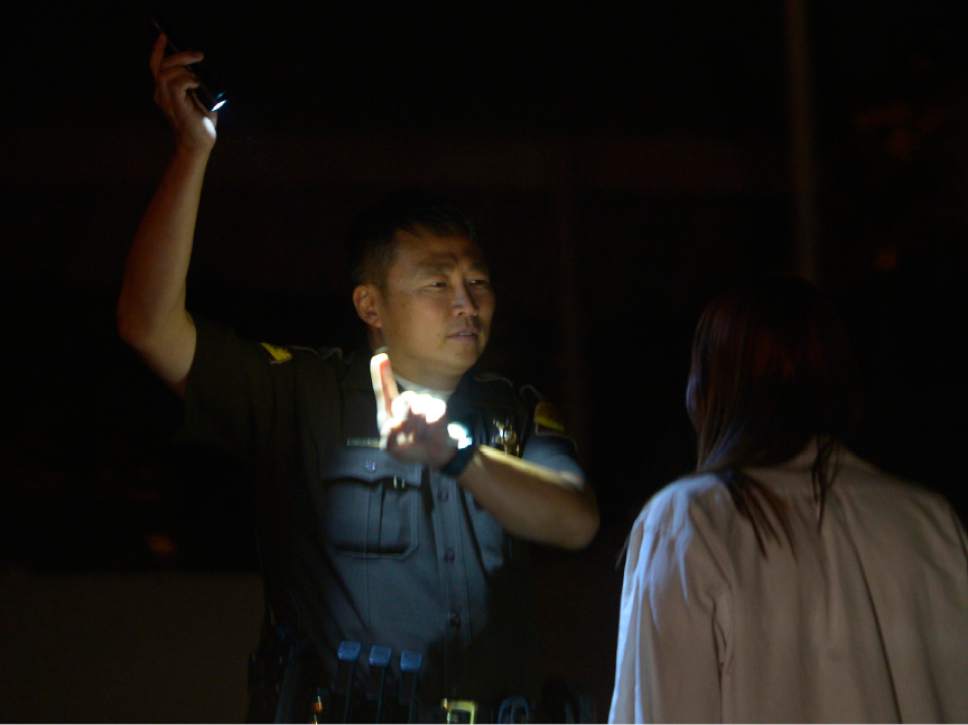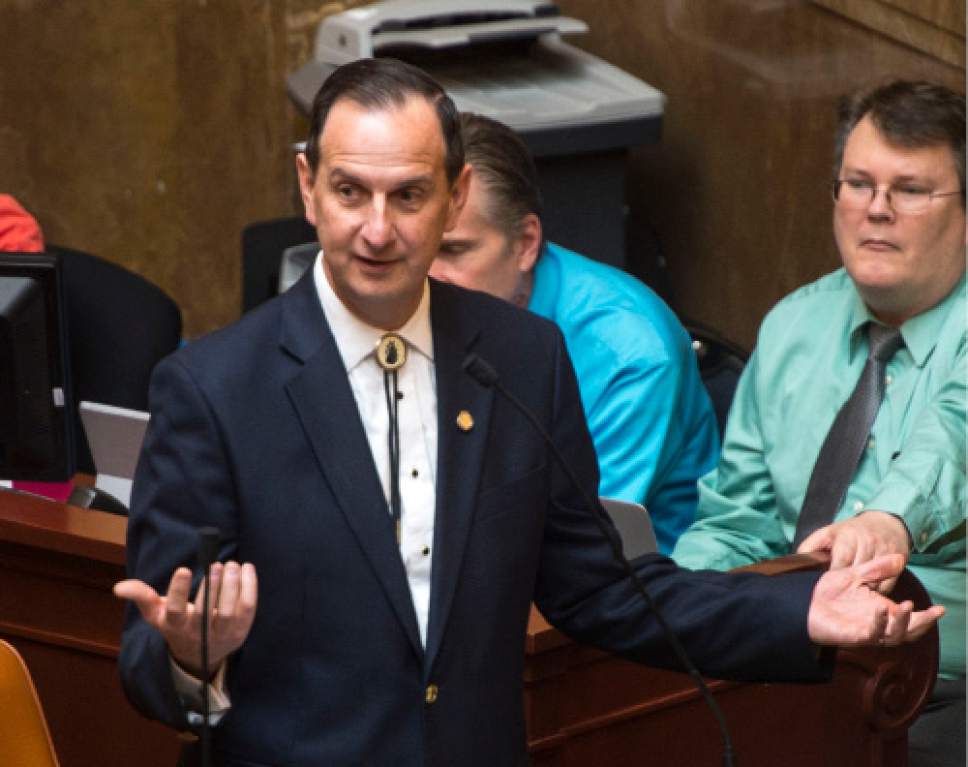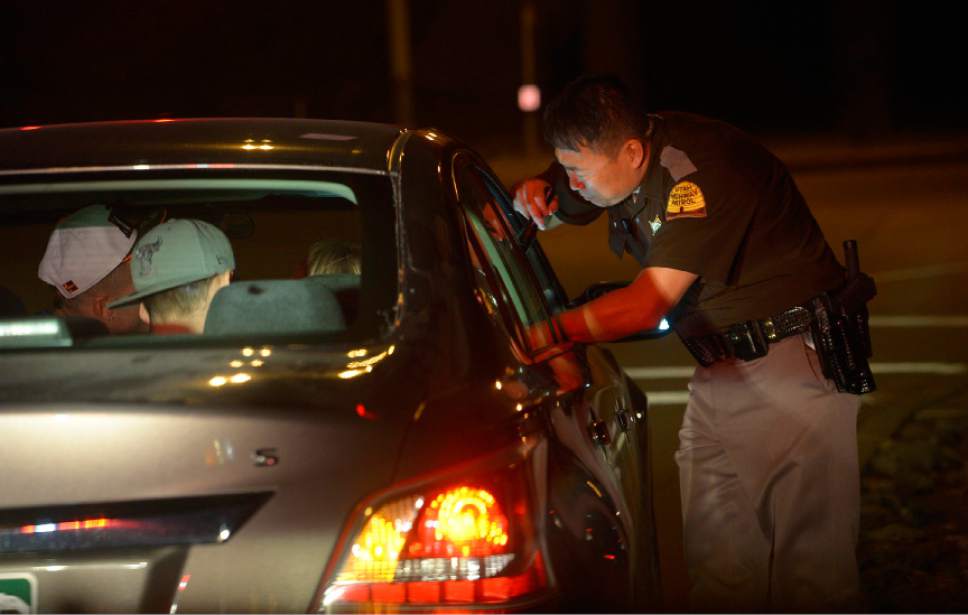This is an archived article that was published on sltrib.com in 2017, and information in the article may be outdated. It is provided only for personal research purposes and may not be reprinted.
The Utah House voted Thursday to make Utah the first state in the nation to lower its legal limit for driving under the influence to a 0.05 blood-alcohol content (BAC) — which an average man could reach at three drinks, and a female at two.
Representatives passed HB155 on a 48-26 vote and sent it to the Senate for consideration. The current BAC limit is 0.08.
"The goal is to send the message that in the state of Utah, if you drink, you don't drive" — and should not play a game of trying to figure how many drinks could still allow driving legally, said Rep. Norm Thurston, R-Provo, sponsor of the bill.
He noted that more than 100 countries — including nearly all of Europe — already have a 0.05 limit.
Also, commercial truck drivers in the United States have an even-lower BAC limit of 0.04. Young drivers in Utah may not legally have any alcohol in their blood until they reach age 21.
Bella Dinh-Zarr, vice chairwoman of the National Transportation Safety Board (NTSB), earlier traveled to Utah to testify for the bill and said its biggest message is that people should not drink and drive — not that they could have a drink or two and still drive. "It's about separating drinking from driving," she said.
However, several lawmakers questioned whether the bill would unduly ensnare responsible drinkers who are not truly impaired. Rep. Mark Wheatley, D-Murray, said current laws allow police to handle those who are indeed impaired.
But Thurston predicted the proposed change could create a smaller-than-expected increase in DUIs. He said that's because police who suspect a DUI may pull over someone only if they are driving erratically. Then they must conduct a field sobriety test.
Only those who fail the sobriety test — such as walking a straight line — are arrested for driving impaired, and then are tested to determine their BAC.
Thurston added that a typical male would need to drink five cans of Utah beer to reach 0.05, or two-thirds of a bottle of wine. "So this isn't just have a beer after work and get pulled over. This is have a six pack of beer after work and you are in trouble."
With that, Rep. Eric Hutchings, R-Kearns, said the bill sends the message, "If you're impaired, just stay off the highway. This is a step in that direction."
Earlier this week, the American Beverage Institute issued statements attacking the bill and similar ones under consideration in Hawaii and Washington.
"The move would target responsible and moderate social drinkers while ignoring the hardcore drunk drivers who pose the greatest threat to safety — many of them registering at double or triple the current legal BAC limit," said Sarah Longwell, managing director of the institute.
"If we want to save lives we have to focus on the real problem and not be distracted by feel-good legislation that criminalizes perfectly responsible behavior," she said.
The bill, if enacted, would not take effect until Dec. 30, 2018. Thurston said that would give extra time to work through any issues.
And enactment just before the New Year's holiday would bring extra publicity to the change.







